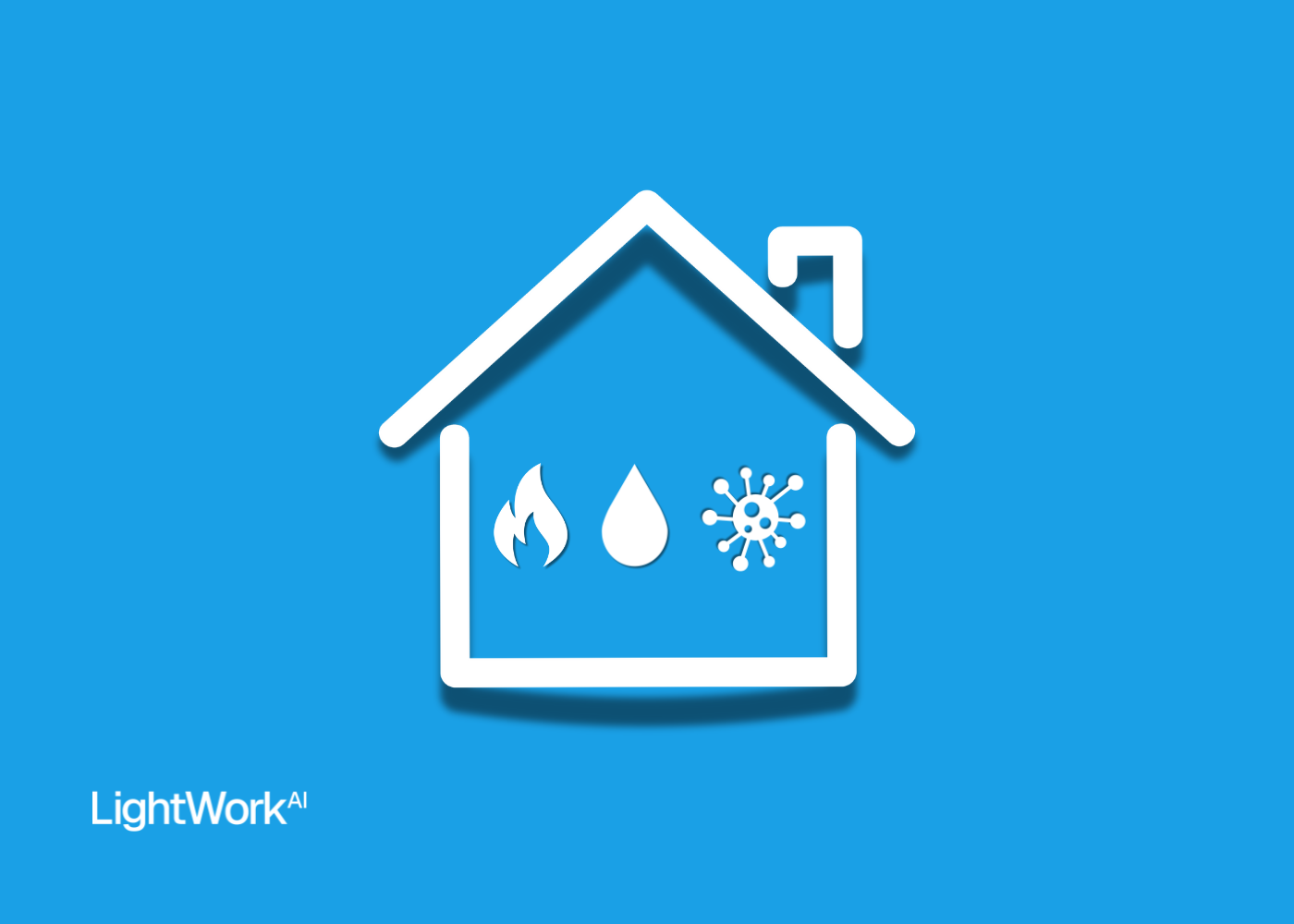Decent Homes Standard: What It Means for Private Landlords in 2025
The Decent Homes Standard is coming to the private rented sector with stricter inspections and tougher penalties. Learn what the new rules mean, how to stay compliant, and how LightWork AI helps landlords manage property standards confidently.

A recent survey by ECC Paragon found that almost one in five private rental homes may fall short of the new Decent Homes Standard (DHS). For landlords, that is a serious warning sign. Without taking early action, properties are at risk of failing inspections. Enforcement has also increased significantly. Civil penalties, fines of up to £40,000, rent repayment orders, or even prosecution may apply to landlords whose properties do not meet the new standards for housing.
If you manage or own rental properties, now is the time to check your portfolio, fix long-standing issues, organise compliance records, and set up a system that keeps you ahead of deadlines. This guide outlines what the new standard involves, what will be expected of private landlords, and how to avoid enforcement with LightWork AI.
Understanding the Decent Homes Standard
The DHS defines what a reasonable and safe home should provide. Currently, there is no unified standard for private rental properties. Instead, landlords must comply with several overlapping duties:
- Keep properties fit for human habitation under The Homes (Fitness for Human Habitation) Act 2018
- Avoid serious Category 1 hazards listed in the Housing Health and Safety Rating System
- Maintain the structure and essential services of every building under the Landlord and Tenant Act 1985
The new framework does not replace these laws. Instead, it brings them together in a clearer, more enforceable form and gives local authorities stronger tools to act when standards are not met.
What Makes a Home Decent?
Until now, the DHS has applied only to social housing. Under the government’s new Renters Rights Bill, it will soon extend to the private rented sector (PRS). The following criteria set out a new benchmark for what is considered a safe and acceptable place to live:
1. Free from serious hazards
Properties must be free from major risks such as damp, mould, unsafe wiring, fire dangers, or unstable stairs. Under Awaabs Law, which will come into force for social landlords in October 2025 and later for private landlords, such hazards must be repaired within strict time limits.
2. Reasonable state of repair
Key building elements, such as roofs, walls, and heating systems, must be repaired or replaced when they become unreliable. The assessment will focus on the condition of the components rather than age.
3. Modern facilities
Homes should have kitchens less than 20 years old and bathrooms less than 30. They should also offer enough space and a practical layout. While age is a guide, the overall condition and usability will be what matters most.
4. Adequate warmth and energy efficiency
Homes must provide reliable heating and proper insulation. They will also need to meet the Minimum Energy Efficiency Standards (MEES) and use programmable heating controls. The government is currently consulting on raising the minimum Energy Performance Certificate (EPC) rating to C by 2030, up from the present level of E.
It is important to note that these changes are still under consideration and may be changed when implemented in the final version of the DHS.
A survey by ECC Paragon found that more than a fifth of private rental properties (21 per cent) don’t currently comply with the Decent Homes Standard.
Similarly, the English Housing Survey 2022-2023 shows that private renters are more likely to live in poor-quality homes than those in any other type of housing.
Tenants renting from private landlords were also found to face a higher risk of living in properties affected by damp, mould, or serious “Category 1” hazards.
How Will Enforcement Work?
Enforcement will begin with inspections that may result from tenant reports, random audits, or licensing requirements. Landlords will then be issued with notices, specifying specific deadlines for making repairs or improvements. Finally, penalties will be issued for landlords who fail to take appropriate action on their properties.
Councils will adopt a more proactive role, carrying out more regular checks and taking faster action. Local authorities will lead the process. Tenants will not need to prove that a property is unfit; instead, landlords must show that their homes comply with current standards. Councils will also have the power to issue on-the-spot fines of up to £7,000 for serious problems such as damp, mould, or electrical hazards.
How LightWork AI Can Help
Managing compliance across multiple properties can be difficult, especially with tighter rules on the horizon. LightWork AI helps landlords and letting agents stay organised and compliant by allowing them to:
- Monitor building, gas, and electrical safety from one central dashboard
- Receive alerts before certificates expire or inspections are due
- Log repairs, inspections, and tenant communications in a single system
- Trigger maintenance tasks automatically when hazards are reported
- Keep all compliance documentation ready for review at any time
With LightWork AI, landlords can reduce the chance of penalties, build stronger tenant relationships, and prove that their properties meet every requirement of the new Decent Homes Standard.
What Landlords Should Do Now
Landlords should start preparing now. Implementing proptech solutions to streamline compliance in property management will drastically ease the burden of the new demands. LightWork AI can take care of much of the routine work, from audit checklists and certificate tracking to maintenance planning and reporting. It saves time, ensures consistency, and gives landlords the records needed if an inspection takes place.
Why Does This Matter?
Tenants are more informed than ever about their rights. Once the DHS becomes law, they will have a greater understanding of when property standards are not met and will know exactly how to raise complaints. For landlords, the best approach is to make sure every property is fully compliant, supported by reliable documentation and timely maintenance.
Key Takeaway for Landlords
The Decent Homes Standard will soon apply to every property in the private rented sector. Each home must be safe, well maintained, modern, and energy efficient. Inspections and penalties will increase, and councils will expect proof of compliance.
The most effective defence is to stay ahead. Regular maintenance, organised paperwork, and automated management systems will protect both your tenants and your business. LightWork AI provides the tools to make that possible. If you would like to learn more, contact LightWork AI or arrange a demo today.

